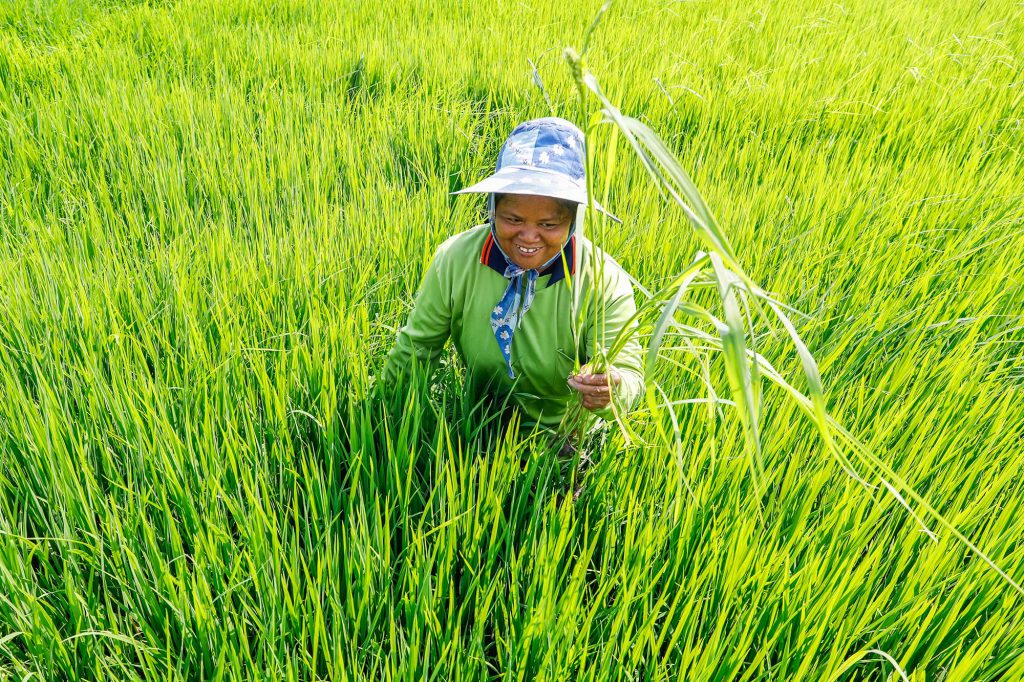
Writer: Agriculture and Food Cluster Team
The Thai government has planned to hold a press conference at the Ministry of Agriculture and Cooperatives in Bangkok this Friday to announce the launch of a joint public private project called Thai Rice NAMA, hoping to transform the Central Plains of Thailand to low-carbon rice farming.
The delegation expected to attend during the press conference includes Margaret Tongue, charge d’affaires of the British embassy, Claudia Ebach, Counsellor for Food and Agriculture of the German embassy, Tim Mahler, Country Director of GIZ Thailand and Malaysia and Matthias Bickel, GIZ Thailand’s director for the agriculture and food cluster.
Realizing the impacts of climate change from the rice sector, the Ministry of Agriculture and Cooperatives, Ministry of Natural Resources and Environment and the Bank for Agriculture and Agricultural Cooperatives are gearing up the Thai Rice NAMA project proposal which has been submitted to the NAMA Facility in November 2017.
“Although the rice sector is not among the concerned sectors that Thailand has pledged to cut greenhouse gas emissions in the Paris Agreement, the Thai government will use Thai Rice NAMA as a pilot project in tackling climate change,” said Doojduan Sasanavin, Deputy Permanent Secretary of the Minister of Agriculture and Cooperatives.
The multi-donor Nationally Appropriate Mitigation Actions (NAMA) facility board has approved the project implementation in July 2018 with joint efforts of Thailand’s Rice Department and the Deutsche Gesellschaft für Internationale Zusammenarbeit (GIZ) GmbH, the German a federal enterprise supporting sustainable development worldwide.
The NAMA Facility provided financial support equaling to about 530 million baht (14.9 million euros) to make the project happen.
” Through the [Thai Rice NAMA] project and the application of the world’s first rice sustainability standard, The Thai government with its various partners will not only be able to significantly reduce methane emissions from rice production but also to strengthen environmental sustainability at large as well as to support smallholder farmers to become more competitive, inclusive and resilient ” , said Matthias Bickel, GIZ Thailand’s director for the agriculture and food cluster and Chairperson of the Sustainable Rice Platform (SRP) Board of Directors.
About 100,000 local rice farmer households in six provinces – Chainat, Angthong, Pathum Thani, Sing Buri, Ayutthaya, Suphanburi and nearby watershed areas will work with the Thai Rice NAMA Project to increase their productivity and reduce the possible causes for rising global temperature.
The low-carbon farming techniques including land leveling, alternate wetting and drying, site-specific nutrient management, and straw and stubble management are applied in the eight demonstration plots, covering 61.25 rai1.
Thai Rice NAMA Project will be effective until 2023.
1 6.25 rai is equal to 1 hectare

